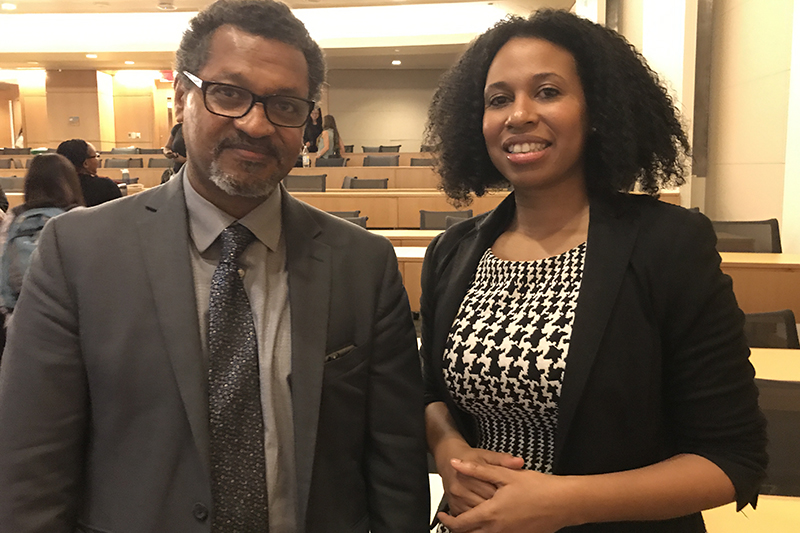EVMS leaders serve on ODU health equity panel

Having access to health care shouldn’t depend on the color of your skin, yet many statistics suggest it could be a contributing factor. If that’s the case, how can the medical community bring about change?
That was the focus of the panel discussion “A Commitment to Advance Racial Equity and Social Justice in Health,” at Old Dominion University’s Strome Entrepreneurial Center on Feb. 15.
L.D. Britt, MD, MPH, the Edward J. Brickhouse Chair in Surgery, the Henry Ford Professor of Surgery and Professor and Chair of Surgery; and Mekbib Gemeda, Vice President of Diversity and Inclusion, served on the panel with Aletha Maybank, MD, MPH, Deputy Commissioner, New York City Department of Health, and Founding Director of the Center for Health Equity.
During the discussion, panelists agreed that many of today’s inequities stem from the past, not biology. “It has been made abundantly clear that continuing health disparities are rooted in structures of historical racist and discriminatory disenfranchisement of underserved communities,” Mr. Gemeda says. “Resolving these challenges is not only an important aspect of the aspiration of the medical profession to heal individuals and communities, it also represents a critical pathway to developing a healthy, democratic and prosperous nation.
Dr. Maybank believes there is a formula that can help create change: Reform, Name, Target, Change and Mobilize.
Reform: Help your institution become a racial justice and multi-cultural organization.
Name: Make injustices visible via data and storytelling.
Target: Invest in key neighborhoods via place-based efforts.
Mobilize: Advance health equity in all policies.
Change: Amplify community power via collective action and volunteerism.
“The opportunities to resolve these challenges,” Mr. Gemeda says, “lie in confronting the underlying structures that perpetuate inequities.”